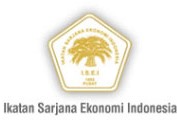Analysis of Energy Transformation Through Biofuel Energy Downstream to The National Economy
(1) Faculty of Social and Political Science, Gadjah Mada University, Yogyakarta
(2) Faculty of Social and Political Science, Gadjah Mada University, Yogyakarta
(3) Faculty of Social and Political Science, Gadjah Mada University, Yogyakarta
Abstract
Keywords
Full Text:
PDFReferences
Akhmad et al. (2019). The impact of fuel oil price fluctuations on indonesia’s macro economic condition. International Journal of Energy Economics and Policy, 9(2), 277–282. doi:10.32479/ijeep.7470.
Anton, S. G. & Afloarei, A. E. (2019). The effect of financial development on renewable energy consumtion. A panel data approach. Renewable Energy, 330–338. doi:https://doi.org/10.1016/j.renene.2019.09.005.
Arshad, M., Zia, M. A. & Shah, F. A. (2018). Perspectives on Water Usage for Biofuels Production. 1st edn, Perspectives on Water Usage for Biofuels Production. 1st edn. Springer International Publishing. doi:10.1007/978-3-319-66408-8.
Bamati, N. & Raoofi, A. (2019). Development level and the impact of technological factor on renewable energy production. Renewable Energy, 946–955. doi:https://doi.org/10.1016/j.renene.2019.11.098.
Bhattarai, K. et al. (2011). Biofual: An alternative to fossil fuel for alleviating worls energy and economic crisis. Journal of Environmental Science and Health, Part A [Preprint]. doi:https://doi-org.ezproxy.ugm.ac.id/10.1080/10934529.2011.607042.
Bora, A. P., Gupta, D. P. & Durbha, K. S. (2020). Sewage slude to bio-fuel: A review on the sustainable approach of transforming sewage waste to alternative fuel. Fuel Journal, 25. doi:https://doi.org/10.1016/j.fuel.2019.116262.
BPKRI (2017) Rencana Umum Energi Nasional, 2017. Available at: https://peraturan.bpk.go.id/Home/Details/68772.
BPKRI (2022) Peraturan Pemerintah Republik Indonesia Nomor 79 tahun 2014, 2014. Available at: https://peraturan.bpk.go.id/Home/Details/5523.
Burlinson, A. et al. (2021). Fuel Poverty and financial distress. Energy Economics, 1, pp. 1–18. doi:https://doi.org/10.1016/j.eneco.2021.105464.
Cetin, M. A. (2017). Investigating the environmental Kuznets Curve and the role of green energy: Emerging and developed markets. Internationall Journal of Green Energy, 37–44. doi:https://doi.org/10.1080/15435075.2017.1413375.
Choudhary, M. et al. (2020). Biofuel production from lignocellulosic biomass: Introduction and metabolic engineering for fermentation scale-up. in Generic and Metabolic Engineering for Improved Biofuel Production from Lignocellulosic Biomass. Cambric, United States: Elsivier, p. 3.
Cooper, J. et al. (2020). Treatment and resource recovery options for first and second generation bioethanol spentwash – A review. Chemosphere, 1–15. doi:https://doi.org/10.1016/j.chemosphere.2019.124975.
EBTKE (2022a) Masa Transisi Energi Menuju Net Zero Emission, EBTKE. Available at: https://ebtke.esdm.go.id/post/2022/02/21/3091/masa.transisi.energi.menuju.net.zero.emission.
EBTKE (2022b) Pemerintah Dorong Peran Daerah Dukung Percepatan Transisi Energi di Indonesia, EBTKE. Available at: https://ebtke.esdm.go.id/post/2022/02/14/3083/pemerintah.dorong.peran.daerah.dukung.percepatan.transisi.energi.di.indonesia.
Eka Satya, V. (2022). Pro Kontra Kenaikan Bahan Bakar Minyak. Kajian Singkat DPR RI, Vol. XIV, p. 96.
Ermawati, T. (2015). Analisis Subsidi Energi dalam Pengembangan Energi Terbarukan. Jurnal Ekonomi dan Pembangunan, 53–54.
ESDM (2019) Indonesia Energy Outlook. Jakarta.
Extence, A. & Pinchbeck, A. (2022) Moving from fossile fuels to renewable energy. Available at: https://edu.rsc.org/feature/moving-from-fossil-fuels-to-renewable-energy/4015752.article.
Gasoline Petrol Prices (2022) Gasoline prices, litre, 24-Oct-2022, Gasoline Petrol Prices. Available at: https://www.globalpetrolprices.com/gasoline_prices/.
Gheewala, S. H., Damen, B. & Shi, X. (2013). Biofuels: Economic, environmental and social benefits and costs for developing countries in Asia. Wiley Interdisciplinary Reviews: Climate Change, 4(6), 497–511. doi:10.1002/wcc.241.
GoodStats (2022a) 10 Negara dengan Harga BBM Termahal di Dunia,
GoodStats. Available at: https://goodstats.id/article/negara-dengan-harga-bbm-termahal-di-dunia-zvZJ0.
GoodStats (2022b) Anggaran Subsidi BBM dalam 6 Tahun Terakhir, GoodStats. Available at: https://goodstats.id/infographic/anggaran-subsidi-bbm-dalam-6-tahun-terakhir-QbuUK.
Hochman, G., Rajagopal, D. & Zilberman, D. (2011). The effect of biofuels on the international oil market. Applied Economic Perspectives and Policy, 33(3), 402–427. doi:10.1093/aepp/ppr016.
Huang, D., Zhou, H. & Lin, L. (2012). Biodiesel: An alternative to conventional fuel. Energy Procedia, 16(PART C), 1874–1885. doi:10.1016/j.egypro.2012.01.287.
Inglesi-Lotz, R. & Thopil, G. A. (2019) The transition from fossils to renewables and its impact on consumer prices, 2019. Available at: https://theconversation.com/the-transition-from-fossils-to-renewables-and-its-impact-on-consumer-prices-125242.
Janda, K., Kristoufek, L. & Zilberman, D. (2012). Biofuels: Policies and impacts. Agricultural Economics (Czech Republic), 58(8), 372–386. doi:10.17221/124/2011-agricecon.
Ji, Q., Zhang, D. & Geng, J. (2018). Information linkage, dynamic spillovers in prices and volatility between the carbon and energy markets. Journal of Cleaner Production, 972–978. doi:https://doi.org/10.1016/j.jclepro.2018.07.126.
Kementan (2018) Data Tanaman Pangan, Kementerian Pertanian Republik Indonesia. Available at: https://www.pertanian.go.id/home/?show=page&act=view&id=61.
Khatiwada, D., Palmen, C. & Silveira, S. (2018). Evaluating the Palm Oil Demand in Indonesia: Production Trends, Yields, and Emerging Issues. Biofuels, 10–11.
Limanseto, H. (2022) Akselerasi Net Zero Emissions, Indonesia Deklarasikan Target Terbaru Penurunan Emisi Karbon, 2022. Available at: https://www.ekon.go.id/publikasi/detail/4652/akselerasi-net-zero-emissions-indonesia-deklarasikan-target-terbaru-penurunan-emisi-karbon.
Ma, Y. & Liu, Y. (2019). Turning food waste to energy and resources towards a great environmental and economic sustainability: An innovative integrated biological approach. Biotechnology Advances, 1–11. doi:https://doi.org/10.1016/j.biotechadv.2019.06.013.
MESDM (2020) Peraturan Menteri Energi dan Sumber Daya Mineral Republik Indonesia. Jakarta.
MESDM (2021) Keputusan Menteri Energi dan Sumber Daya Mineral Republik Indonesia. Jakarta.
Ministry of Energy and Mineral Resources (2022) Jamin Ketersediaan Energi, Pemerintah Susun Grand Strategi Energi Nasional, 2020. Available at: https://www.esdm.go.id/id/media-center/arsip-berita/jamin-ketersediaan-energi-pemerintah-susun-grand-strategi-energi-nasional.
Muta, T., Erdogan, M. and Newman, L. (2022) Consumption subsidies for fossil fuels remain a roadblock on the way to a clean energy future, International Energy Agency. Available at: https://www.iea.org/commentaries/consumption-subsidies-for-fossil-fuels-remain-a-roadblock-on-the-way-to-a-clean-energy-future (Accessed: 27 October 2022).
Naji, S. Z., Tye, C. T. & Abd, A. A. (2021). State of the art of vegetable oil transformation into biofuels using catalytic cracking technology: Recent trends and future perspective. Process Biochemistry, 148. doi:https://doi.org/10.1016/j.procbio.2021.06.020.
Negm, N. A. et al. (2017) Biofuels from Vegetable Oils as Alternative Fuels: Advantages and Disadvantages, Surfactants in Tribology, Volume 5. doi:10.1201/9781315120829-18.
Nguyen, K. H. & Kakinaka, M. (2019). Renewable energy consumption, carbon emissions, and development stages: Some evidence from panel cointegration analysis. Renewable energy, 1049. doi:https://doi.org/10.1016/j.renene.2018.08.069.
Rehman, A. et al. (2021). Sustainable development and pollution: the effects of CO2 emission on population growth, food production, economic development, and energy consumption in Pakistan. Environmental Science and Pollution Research [Preprint]. doi:https://doi.org/10.1007/s11356-021-16998-2.
Rivani, E. (2014). Kebijakan Subsidi BBM Dan Efisiensi Perekonomian. Info Singkat Ekonomi dan Kebijakan Publik, VI(9). Available at: www.dpr.go.id.
Rodionova, M. V. et al. (2017). Biofuel production: Challenges and opportunities. International Journal of Hydrogen Energy, 42(12), 8450–8461. doi:10.1016/j.ijhydene.2016.11.125.
Sahin, Y. (2011). Environmental impacts of biofuels. Energy Education Science and Technology Part A: Energy Science and Research, 26(2), 129–142. doi:10.1017/cbo9780511779152.013.
Sainger, M. et al. (2017). Advances in genetic improvement of Camelina sativa for biofuel and industrial bio-products. Renewable and Sustainable Energy Reviews, 623–637.
Sengupta, S., Bhattacharya, D. & Mukhopadyay, M. (2020). Downstream processing of biofuell. in Genetic and Metaboloc Engineerung for Improved Biofuel Production from Lignocellulosic Biomass. Cambridge, United States: Elsevier, 47–62.
Tripathy, P. et al. (2022). Dynamic link between bilateral FDI, the quality of environment and institutions: evidence from G20 countries. Environmental Science and Pollution Research, 29. doi:https://doi.org/10.1007/s11356-021-18368-4.
UNEP (2022) Emissions Gap Report 2022: The Closing Window — Climate Crisis Calls for Rapid Transformation of Societies. Nairobi.
United Nations (2022a) The Sustainable Development Goals Reports, 2019. Available at: https://www.un.org/development/desa/publications/sustainable-development-goals-report-2019.html,.
United Nations (2022b) UN chief calls for. urgent transition’ from fossil fuels to renewable energy, 2021. Available at: https://news.un.org/en/story/2021/01/1081802.
Xia, T. et al. (2019). Asymmetric and extreme influence of energy price changes on renewable energy stock performance. Journal of Cleaner Production, pp. 1–10. doi:https://doi.org/10.1016/j.jclepro.2019.118338.
Yang, D. et al. (2021). Critical transformation pathways and socio-environmental benefits of energy substitution using a LEAP scenario modeling. Renewable and Sustainable Energy Reviews [Preprint]. doi:https://doi.org/10.1016/j.rser.2020.110116.
Yigezu, Z. D. & Muthukumar, K. (2015). Biofuel production by catalytic cracking of sunflower oil using vanadiium pentoxide. Jouran od Analitical and Applied Pyrolysis, pp. 112, 341-347. doi:https://doi.org/10.1016/j.jaap.2015.01.002.
York, R. & Bell, S. E. (2019). Energy transitions or additions?: Why a transition from fossil fuels requires more than the growth of renewable energy. Energy Research & Social Science, 40–43. doi:https://doi.org/10.1016/j.erss.2019.01.008
Refbacks
- There are currently no refbacks.

This work is licensed under a Creative Commons Attribution 4.0 International License.







